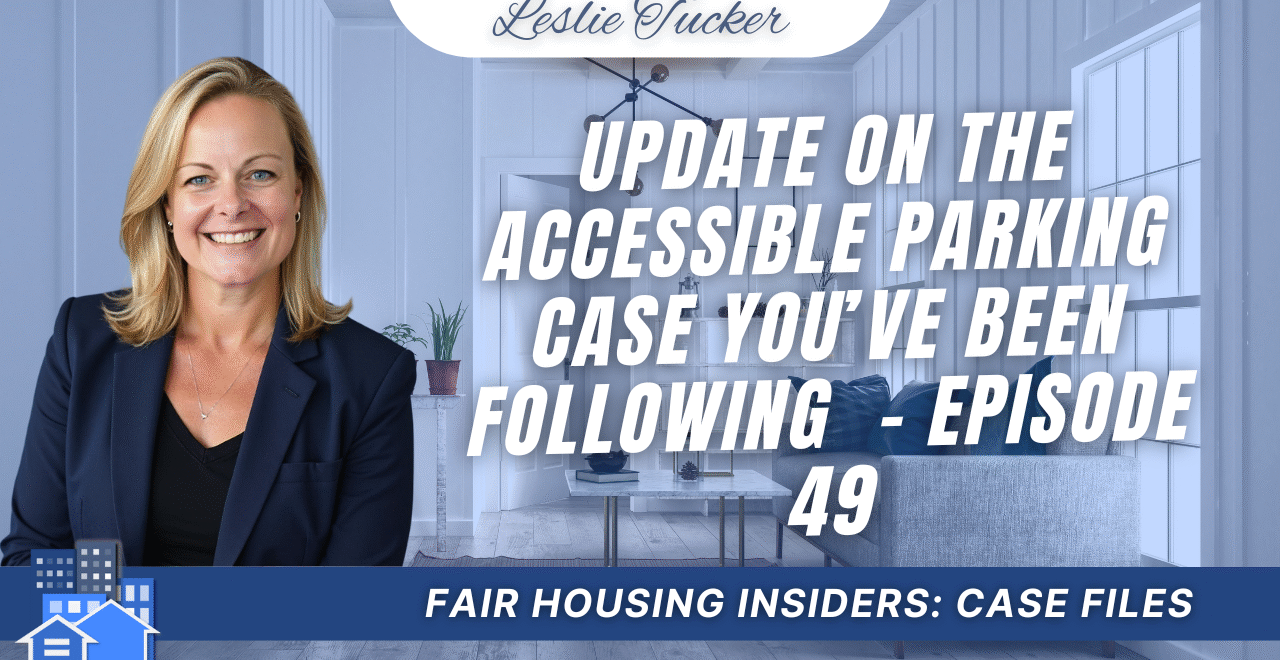Fair housing compliance often hinges on how housing providers respond to resident requests. A recent update to a case involving Dr. Emma Adams underscores the importance of acting promptly and thoughtfully when responding to reasonable accommodation requests.
Background of the Case
Dr. Adams, a paraplegic resident who drives a van equipped with a motorized ramp, was assigned a standard parking space at her condominium complex. The space did not provide enough room for her to enter and exit her vehicle safely. Over the course of three years, she made multiple requests for an accessible parking space, requests that were allegedly repeatedly denied.
The United States filed a complaint under the Fair Housing Act, alleging that the Homeowners Association and property management company failed to reasonably accommodate her disability-related parking needs. While the housing providers argued that they had taken some steps, such as opening all levels of the parking deck and reminding residents of parking restrictions, these actions were deemed insufficient. A court granted partial summary judgment in favor of the United States, finding that the failure to accommodate had occurred. The remaining claims were resolved through a settlement.
Terms of the Settlement
The consent decree required several significant changes at the property. Most importantly, Dr. Adams was permanently assigned a parking space that meets her accessibility needs. The space was re-marked to make clear that it was reserved solely for her use and not open to other residents as a general accessible space.
Beyond addressing her individual request, the settlement required the Homeowners Association and management company to take broader compliance measures. They were obligated to provide mandatory fair housing training for all board members, employees, and agents. They had to adopt and distribute a clear policy for handling accommodation and modification requests, and ensure that signage was posted so residents knew how to submit such requests. They also had to keep detailed records of all future accommodation requests.
Compliance would not be left to chance. The housing provider was required to submit annual reports to the Department of Justice for three years, documenting the training completed, the accommodation requests received, the responses provided, and any new discrimination complaints filed during that period.
Key Lessons for Housing Providers
The most important lesson is that housing providers must never delay or ignore an accommodation request. Even if documentation is unclear or the request seems unusual, the obligation is to seek clarification and engage in the interactive process. Delay itself can become the basis for liability.
Another critical takeaway is the importance of training and written policies. Many housing providers mistakenly believe they cannot assign a reserved accessible parking space to a specific resident. This case makes clear that such an assignment can indeed be a reasonable and legally required accommodation. Ensuring that staff understand their obligations and have policies to guide them is essential to compliance.
Final Thoughts
The Dr. Adams case highlights how fair housing complaints often do not end with a simple investigation. They can result in binding agreements that reshape policies, training, and daily operations. By responding promptly, maintaining clear procedures, and ensuring staff are fully informed of their responsibilities, housing providers can both protect residents’ rights and reduce the risk of costly litigation.
You Might Also Like:
- Update on the Accessible Parking Case You’ve Been Following – Episode 49
- When Eviction Becomes Retaliation – Episode 48
- Case Files: The Price of Parking Discrimination – Episode 47
- Case Files: ESA Denied After Online Provider Verification—What Went Wrong? – Episode 46
- Case Files: When Mold, Disability, and Retaliation Collide – Episode 45

